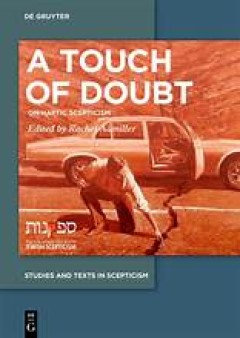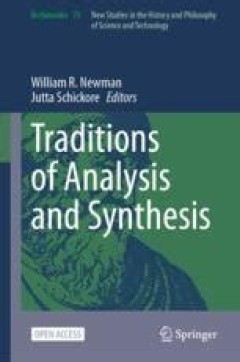Filter by

Afrikaners and the boundaries of faith in post-apartheid South Africa
This book examines the shifting moral and spiritual lives of white Afrikaners in South Africa after apartheid. The end of South Africa’s apartheid system of racial and spatial segregation sparked wide-reaching social change as social, cultural, spatial and racial boundaries were transgressed and transformed. This book investigates how Afrikaners have mediated the country’s shifting boundari…
- Edition
- -
- ISBN/ISSN
- 9781003185574
- Collation
- 195
- Series Title
- Routledge Contemporary South Africa
- Call Number
- -

A World Without Hunger
An Open Access edition of this book is available on the Liverpool University Press website and the OAPEN library as part of the Opening the Future project with COPIM. Drawing on the rich personal archive of the geographer Josué de Castro, this book tells a new history of geography by following one of the twentieth century's most influential and creative Brazilian intellectuals from the estuari…
- Edition
- -
- ISBN/ISSN
- 9781802079012
- Collation
- oer.unej.ac.id
- Series Title
- Liverpool Latin American Studies,
- Call Number
- -

A Touch of Doubt
Scepticism claims that there is always something that slips through the epistemologist’s grasp.Drawing on the tradition of scepticism within continental philosophy, this volume discusses how the sense of touch uncovers contradictions within our knowledge of ourselves and the world. It questions what we can know through touch, what we can know about touch itself, and how our experience of touc…
- Edition
- -
- ISBN/ISSN
- 9783110627176
- Collation
- oer.unej.ac.id
- Series Title
- Studies and Texts in Scepticism,
- Call Number
- -

[Given, If, Then]: A Reading in Three Parts
[Given, If, Then] attempts to conceive a possibility of reading, through a set of readings: reading being understood as the relation to an Other that occurs prior to any semantic or formal identification, and, therefore, prior to any attempt at assimilating, or appropriating, what is being read to the one who reads. As such, it is an encounter with an indeterminable Other, an Other who is other…
- Edition
- -
- ISBN/ISSN
- 9780692298374
- Collation
- -
- Series Title
- -
- Call Number
- -

A Climate of Justice: An Ethical Foundation for Environmentalism
- Edition
- -
- ISBN/ISSN
- 978-3-030-77365-6
- Collation
- 185 hlm
- Series Title
- -
- Call Number
- -
- Edition
- -
- ISBN/ISSN
- 978-3-030-77365-6
- Collation
- 185 hlm
- Series Title
- -
- Call Number
- -

Principles and Pedagogies in Jewish Education
- Edition
- -
- ISBN/ISSN
- 978-3-030-83925-3
- Collation
- -
- Series Title
- -
- Call Number
- -
- Edition
- -
- ISBN/ISSN
- 978-3-030-83925-3
- Collation
- -
- Series Title
- -
- Call Number
- -

Traditions of Analysis and Synthesis
This open access book provides a fresh perspective on analysis and synthesis across several areas of inquiry. The two operations form a primary basis of modern laboratory science, ranging from the spectrographic analysis used in practically every scientific discipline today, to the naming of entire disciplines, such as synthetic organic chemistry. Despite their acknowledged significance, howeve…
- Edition
- -
- ISBN/ISSN
- 9783031763984
- Collation
- VII, 402 hlm; ill., lamp.,
- Series Title
- -
- Call Number
- -

The Risks and Ethics of Human Gene Editing = A Philosophical Guide to the Arg…
This Open Access book is about the risks and the ethics of human germline gene editing, i.e., the possibility to make heritable changes to the DNA of early human embryos or germ cells. Is there something particularly morally problematic about editing the human germline? Is there something unique about germline editing, and, if so, does this suggest that we ought not to edit the human germline, …
- Edition
- -
- ISBN/ISSN
- 9783658469795
- Collation
- XIII, 311 ill; lamp
- Series Title
- -
- Call Number
- -

The Resilience of the Hungarian Legal System since 2010 = A Failed Resilience?
- Edition
- -
- ISBN/ISSN
- 9783031704512
- Collation
- VIII, 240 hlm ill; lamp
- Series Title
- -
- Call Number
- -
- Edition
- -
- ISBN/ISSN
- 9783031704512
- Collation
- VIII, 240 hlm ill; lamp
- Series Title
- -
- Call Number
- -

The Nexus Between Legal Pluralism and Inclusive Finance = Insights from Ethio…
This open access book provides detailed information on informal credit markets in Africa and how various legal systems affect these markets. Laws that impose strict formalism exclude many people from the financial system. The lessons learned from the informal credit markets in Ethiopia and South Africa indicate that pluralism offers better opportunities for people to access affordable and susta…
- Edition
- -
- ISBN/ISSN
- 9783031716539
- Collation
- VII, 160 hlm; ill., lamp.,
- Series Title
- -
- Call Number
- -
 Computer Science, Information & General Works
Computer Science, Information & General Works  Philosophy & Psychology
Philosophy & Psychology  Religion
Religion  Social Sciences
Social Sciences  Language
Language  Pure Science
Pure Science  Applied Sciences
Applied Sciences  Art & Recreation
Art & Recreation  Literature
Literature  History & Geography
History & Geography